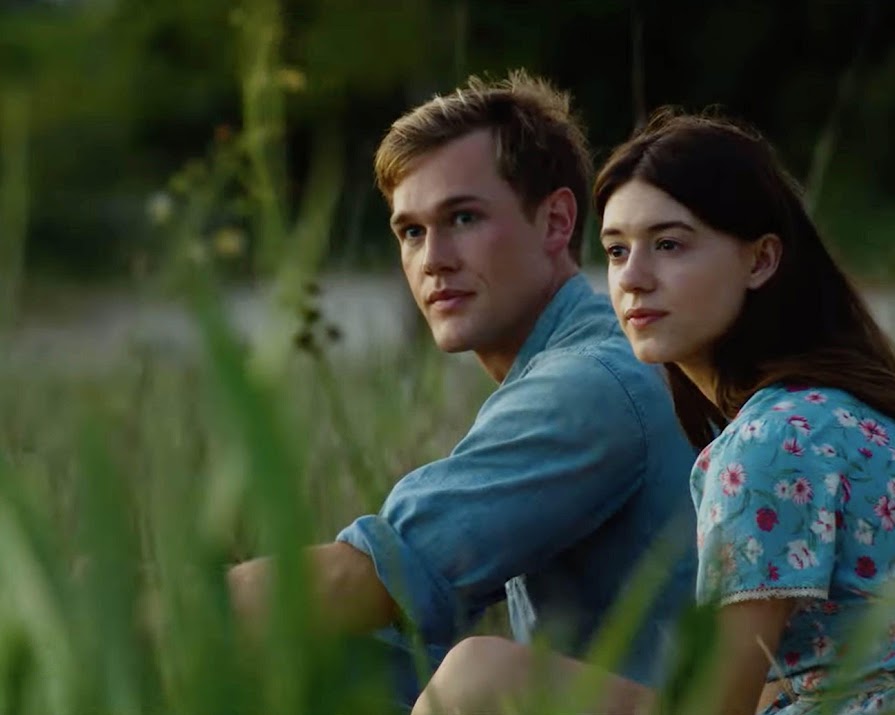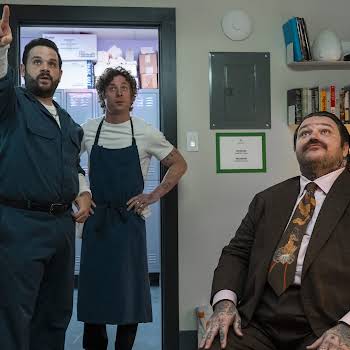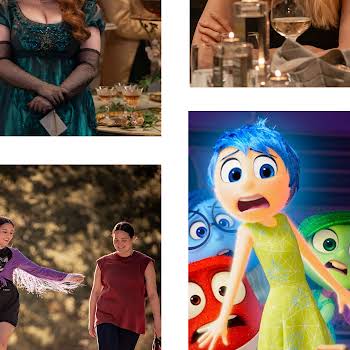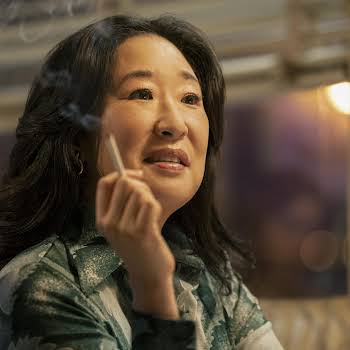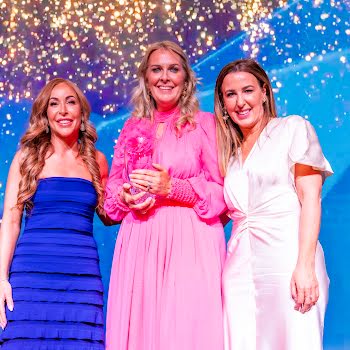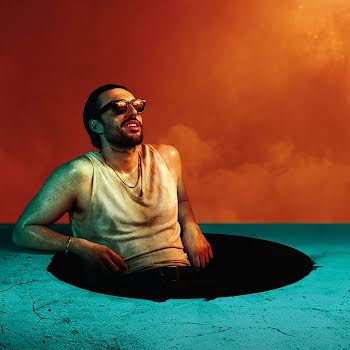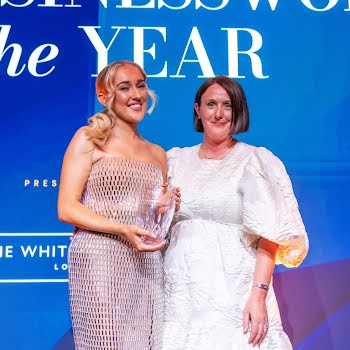The other real life murder at the root of ‘Where The Crawdads Sing’
By Sarah Finnan
12th Sep 2022
12th Sep 2022
Fans can’t help but wonder whether the novel is based on more than just fiction as news emerges of how the author's family found themselves entangled in an actual real-life murder; one that seems to echo eerily throughout the plot of her subsequent book.
*This post contains spoilers for Where The Crawdads Sing.”
The highly-anticipated screen adaptation of Delia Owens’ hit novel opened in Irish cinemas earlier this summer, but a long-hidden controversy about the author’s past life has just emerged – threatening to cloud the movie’s success in discord.
The book
For anyone who has yet to read the book (WHAT are you waiting for?!), the plot centres on main character Kya – a.k.a. the infamous ‘Marsh Girl’. Abandoned by her family at the tender age of six, Kya is forced to fend for herself from her home in the unforgiving setting of the North Carolina marshes. Ostracised from the surrounding community, she’s lived alone in her shack for years until suddenly, she finds herself the sole suspect in a local murder case when Chase Andrews – Kya’s ex-lover – is found dead in the swamp.
(Final warning: skip the next two sentences and scroll to the trailer below if you don’t want to read a spoiler.)
The novel’s latter half takes place largely in the courtroom, where Kya’s innocence is defended. The jury eventually acquits her of the crime, but years later it’s discovered that she actually did commit the murder – an act Owens seems to justify by the fact that Chase had attempted to rape Kya just days prior to his death.
Nearly three decades ago, Owens and her family found themselves entangled in an actual real-life murder; one that seems to echo eerily throughout the plot of her subsequent novel.
The early years
Both biology graduates of the University of Georgia, Delia and Mark Owens spent the large majority of their lives doing conservation work in Africa – eventually settling in a place called North Luangwa National Park in the Northern Province of Zambia.
As in many other areas of Africa, poaching was a huge problem there. However, unlike several other countries which had implemented a shoot-to-kill policy allowing poachers to be shot on sight, Zambia had no such official policy. For poachers, North Luangwa’s isolation made it a favoured hunting ground.
A few short years after the Owens arrived in Zambia, ABC news show Turning Point approached Mark and Delia with regards to filming a documentary about elephant poaching. ABC dispatched a crew to North Luangwa in 1994 and the episode aired nationally on March 30, 1996. Titled Deadly Game: The Mark and Delia Owens Story, the hour-long special opened with a warning to the audience about “scenes of violence which might be upsetting to some viewers”. What those who tuned in actually witnessed was the on-camera killing of an alleged poacher – the controversy of which continues to follow Delia and Mark to this day.
Deadly game
There were three sets of gunshots in the killing shown in Deadly Game. The first shot, the one that knocked the alleged poacher down, was fired before the camera began rolling. The second shot – the first to be heard in the video – came from a thin Black man in a green uniform. The third came from offscreen, fired by an unidentified shooter. The documentary doesn’t indicate who fired the first or last sets of shots.
In the absence of a witness’s testimony, there have been several different accounts of what really happened that fateful day. Some claim that the events were staged by ABC for dramatic effect. Chris Everson, the cameraman who accompanied the scouts on patrol while filming, says that the documentary did not present the whole truth. It was not London Kawele, the Zambian scout, who fired the first or last shots, he told The New Yorker, but Christopher Owens, Mark Owens’s son (and Delia’s step-son).
“It’s a very complicated story, it was a very emotional thing, it was a very bad thing,” Everson said. “It’s something that never should have happened.” Christopher Owens, who was twenty-five years old at the time of the incident, was spending the summer with his father and stepmother at Marula-Puku, an evacuated Bisa village where the Owens had set up camp. On the day of the shooting, Everson said, Mark Owens flew him, along with Christopher and Kawele, to a remote location within the park. It was an unusual group, he remembered, as scouts rarely went on patrol without at least three other scouts present.
According to Everson, Mark Owens left the three men in the park and returned to his headquarters. They quickly came across an abandoned camp and waited in ambush. When a suspected poacher entered the camp, Christopher Owens opened fire. “I don’t know what was going on in Chris’s mind,” Everson said. “He had a rush of blood to the head. I don’t know why he shot him in the first place. I don’t.”
As per The New Yorker; Everson began filming after Christopher fired the first shot, the one that knocked the “trespasser” to the ground. The scout (Kawele) fired at the man, who was now on the ground after that. This is the first shot heard in Deadly Game. Everson said he continued filming as Christopher, who was standing off camera, fired the three final shots at the man’s body. “I should never have allowed it to happen,” Everson said. Though he would not comment how he got back to camp after the shooting, Everson did say that he did not see Christopher Owens again.
Public reaction
Mark’s portrayal in the ABC special raised many questions about his conservation practices – most of them pertaining to scenes that show him touting a pistol, a hunting rifle and an AR-15 automatic rifle. At one point he can be heard telling scouts not to wait for poachers to shoot at them first, “you don’t wait for them to shoot at you. You shoot at them first, all right? That means when you see the whites of his eyes, and if he has a firearm, you kill him before he kills you.”
Jeffrey Goldberg, the author of an in-depth New Yorker profile on the couple/documentary, reports that Mark claimed the AR-15 rifle he was carrying was fake, employed purely as an intimidation tactic. However, the video shows Mark staving off an elephant that appears to be charging toward the ABC crew with the supposedly fake rifle. Vieira later told Goldberg, “The guns looked real to me. I’d be freaked out if they weren’t real. What was he going to do if the elephant charged? Yell ‘Bang, bang?’”
The Owens maintain their innocence. “We were not involved in this incident, or in any other incident of this nature,” they wrote in a letter to donors of their Owens Foundation for Wildlife Conservation in April 1996. There were also allegations that poachers were held under arrest or questioned at Marula-Puku, but the Owens deny ever harming poachers or encouraging scouts to do so. According to them, Mark’s militant persona was simply a performance designed to intimidate poachers and make them believe he was dangerous.
Alexandra Fuller, author of Don’t Let’s Go to the Dogs Tonight: An African Childhood, and a close friend of the Owens’, wrote, “Yes, people went missing while poaching when the Owens were in Zambia and they still do – why do you think the Owens’ have become a scapegoat for this? Poaching is, was and always will be a risky business.”
The Owens’ attorneys claimed that Mark could not be responsible for what the scouts did, because he did not command them. Many of the scouts Jeffrey Goldberg spoke to for the purpose of his article, said otherwise – stating that Mark Owens had clearly been their commander. P. J. Fouche, a hunter who managed a concession on the edge of the park seemed to corroborate this, telling The New Yorker that the Owens’ “thought they were kings”. “[Mark] made himself the law, and his law was that he could do anything he wanted.” Mark once asked Fouche to “bring back as much ammo” as he could from America. Even Mark himself once admitted that though he would prefer not to assert his rank, he has “full authority over the scouts”.
Legal action
The ABC program asserted that Zambia had an unwritten shoot-to-kill policy. The Owens’ later said that a former tourism minister named Christon Tembo visited the North Luangwa area shortly before the ABC crew arrived and told scouts that they could shoot poachers. This was never officially written into law, and the government has stridently denied supporting such a policy – even informally.
The Zambian government launched a homicide investigation into the killing, but faced many challenges along the way – the absence of a body, for one. As national police commissioner, Graphael Musamba, explained in an interview, “The bush is the perfect place to commit murder. We have this all the time in the Northern Province. The animals eat the evidence.”
Years passed, and though no charges were brought and no warrants filed over the killing of the poacher, the Owens never returned to Zambia. Investigators there are still eager to talk to them.
The victim
The victim was never identified, nor was their body ever recovered. Even the original ABC footage of the incident is hard to track down. “It’s the reality – the messy reality, I’m afraid,” Mark told Meredith Vieira, the segment’s narrator, after the execution, which he and Delia apparently weren’t present for. “It is. It’s very messy. It almost gives conservation a very ugly name,” Viera notes. “But that’s the reality. It’s ugly why? Is it ugly because of the elephants? They haven’t done anything wrong. It’s people who make it ugly,” Mark responds.
Deborah Amos, who was the on-camera reporter first assigned to the Owens’ story, told the New Yorker that she recalled meeting Christopher Owens in the Owens’ camp, but that “he disappeared” during her stay. “I don’t know what they did with him, but he was gone.” Amos said that producer Andrew Tkach told her about the shooting only after they had already left the Luangwa Valley and went south, to the Zambezi River, for a rafting trip. “Andrew said after all this, ‘Mark’s son killed somebody.’ ”
She said Tkach explained that he withheld the information because “he didn’t want to hurt the interview” she was soon to conduct with the Owens’. “He knew that this was a holy-sh*t piece of film,” she says Amos told her. “He had the film of the son killing a man in the bush. I was shocked that he didn’t tell me they filmed a murder. I didn’t know that Andrew had a snuff film. As a journalist, it’s very puzzling to me. I was completely oblivious to this. I asked myself, ‘Why the hell didn’t he tell me?’”
Everson said he didn’t know what happened to the body, but the Zambian police detective in charge of the investigation, Biemba Musole, believes it was removed by Mark Owens – a claim Mark Owens vehemently denies. According to Musole, his investigation found that Owens arrived at the scene soon after the shooting and, with the help of scouts, placed the body of the alleged poacher in a cargo net and flew it to a nearby lagoon. There he dropped the body in the water. Christopher Owens has denied being involved in the shooting.
When asked about the incident, Delia told Goldberg some years later, “I know how the rumours about dropping poachers in the river got started. Mark put Chris in a harness under the helicopter and gave him a tour of the valley. Imagine that view! I was going to do it, but I got too scared. So people saw Chris in the harness and they assumed it was a poacher.”
Christopher Owens
In the years before Deadly Game was broadcast, Christopher Owens spent two summers in Zambia, visiting his father and stepmother. According to one of Mark’s sisters, Christopher “greatly enjoyed” these trips and the Owens’ claimed he was well received by scouts. “They all loved Chris,” Delia said. Mark recalled that they even had a nickname for him, Mboo, which means buffalo.
Interviews with scouts painted a vastly different picture, suggesting Christopher was a controversial presence in the camp who used to beat people with sticks.
Christopher has had a tumultuous life since leaving Zambia. He’s been arrested numerous times and was convicted for misdemeanour assault after attacking a man in a Portland bar in 2001.
Present day
As Goldberg notes, the impression that Mark and Delia Owens leave – in their writings and speeches, in the ABC documentary, and on those who have observed them closely – is that they believed so fervently in the righteousness of their cause that they were able to dismiss all criticism. “My memory of them was that they saw themselves as saviours of these animals,” Meredith Vieira admitted. “They were highly emotional about it. The level of caring was very deep, but a corruption of values could come with that. They were adamant about saving these elephants.”
“He scared my people,” Chief Chifunda, one of the chiefs whose ancestral territory was taken by the British to create the North Luangwa Park, said of Mark Owens. “The man has an illness. He loves animals more than he loves people.”
For many years, Delia and Mark Owens lived together in Boundary County, Idaho, just twenty miles from Canada. The couple have since divorced and in 2019, Delia moved to a former horse farm near Asheville, North Carolina… the same secret-filled location of her best-selling book, which is thriving irrespective of Delia’s personal life.
According to Vanity Fair, the sordid episode and controversial ABC documentary hasn’t stopped Owens’s debut novel from selling more than 15 million copies to date – catapulting it to international fame, smashing the record for most weeks spent on The New York Times’ best-seller list and claiming the gold as the best-selling adult title in 2019. “Crawdad” even made one of Merriam-Webster’s top 10 words of that year after searches for the term increased by 1,200%.
Knowledge of the author’s past brings new meaning to the events of the book, however – the ending in particular. “Almost every part of the book has some deeper meaning,” Delia previously told Amazon. “There’s a lot of symbolism in this book.”
The last time Delia seemingly addressed the situation was in a 2019 piece for The New York Times. “I was not involved,” she said when asked about the incident. “There was never a case, there was nothing.” The author then likened the situation to the one her heroine faces in Where The Crawdads Sing. “It’s painful to have that come up, but it’s what Kya had to deal with, name calling. You just have to put your head up or down, or whichever, you have to keep going and be strong. I’ve been charged by elephants before.”
Photography by Sony Pictures.











